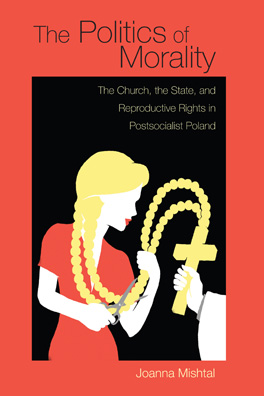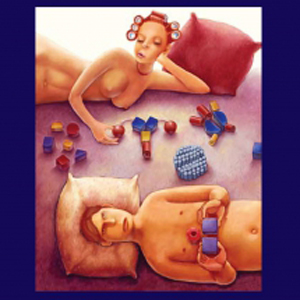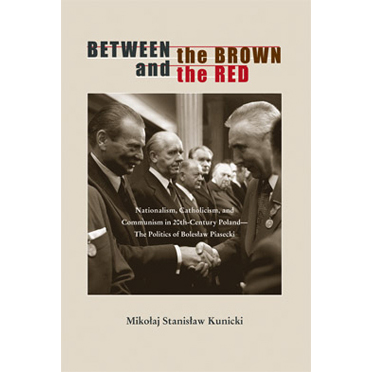
The Politics of Morality: The Church, the State, and Reproductive Rights in Postsocialist Poland
by Joanna Mishtal
Ohio University Press, 2015
The alarm bells are sounding across Europe in response to the recent wave of scandal and legislative maneuvering that accompanied conservative PiS’s (Law and Justice Party) rise to power in Poland. David Ost, in his recent article “Regime Change in Poland, Carried Out From Within,” describes how the current government has taken control of the Constitutional Court and public media, justifying these power-grabs in the name of the “good of the nation.” All who oppose are, in Jarosław Kaczyński’s now-famous words, “najgorszy sort Polaków” (“The worst kind of Poles”).
As shocking as this sudden conservative blitz is, there seems to be a precedent. In The Politics of Morality (2015), Joanna Mishtal, a professor of anthropology at the University of Central Florida, tells an eerily familiar story of how legislation curtailing women’s reproductive rights was quickly and ruthlessly pushed through in the early 1990s, despite the fact that the overwhelming majority of Poles were in favor of some access to abortion, and a majority in favor of access without restrictions. She shows how the Catholic Church, in a series of politically savvy moves that consolidated its influence, gained an incredible amount of power in Poland’s nascent, ostensibly democratic, government and was able not only to restrict abortion and decimate sex education in schools, but also to successfully shape the constitution. The Church’s separation from the state is somewhat vaguely addressed in the Polish Constitution, which allows the Church a presence in state institutions (mandatory religion classes in public schools, displays of the crucifix in government buildings, etc.).
Yet the Church’s influence didn’t stop at official policy. Mishtal’s main argument is that the Church/State enacted a kind of “moral governance,” which relies on the Church being perceived as the sole moral authority. The Church’s argument is that the majority cannot possibly be trusted to set their own moral standards, so therefore they must be guided. Any policies or ethical standards should be shaped according to what the Church deems as moral and correct, regardless of the populace’s opinions or democratic rights. Examples of this include a tightening of gender roles – the Church urged women to leave the workforce and return home to raise children; the state also endorsed this through slashing childcare subsidies and firing a disproportionate number of women during the economic transition. This unholy union of paternalism and neoliberal cost cutting accomplished exactly the opposite: women chose to regulate their fertility and have smaller families. Other examples include the stigmatization of feminism as “extreme,” “aggressive,” and “a threat to the family,” and the pressuring of doctors to invoke “the conscience clause.” This law, passed in 1991, allows doctors to refuse to give an abortion (or any other legal health service) if they are “morally or religiously” opposed to the practice, even in the case of medical emergencies. Take the case of Dr. Wacław Dec, who had publically declared he would provide abortions if a woman was in need. After his death, the Church refused to give him a Catholic burial – a big deal in a country where most cemeteries are Catholic, not to mention the stigma that was then attached to his family. Mishtal includes interviews with doctors who regularly invoke this clause (often illegally), as well as doctors who provide legal abortions. Regardless of the doctors’ personal feelings on the matter, Mishtal uncovers a pervasive fear of reprisal and an understanding that public support of legal abortions would lead to dismissal or worse.
One of the many strengths of Mishtal’s study is that she doesn’t just describe a top-down model of power – she also focuses on everyday women of different economic classes and how they negotiated the legal and cultural restrictions on abortion and contraceptives. She devotes much of her book to the feminist activists and NGOs which tried to fight for women’s rights, as well as to those who sought treatment in the flourishing “abortion underground” – a network of private clinics cryptically advertising in local papers and magazines. This, however, is an expensive option, and for many women living in rural areas or those without much money, an impossible one. She also answers one of the paradoxes of post-socialist Poland – why, in a Catholic country with an abortion ban and a semi-official wariness of hormonal contraceptives, is the birthrate in such steep decline? Mishtal’s answer: Polish women are extraordinarily conscious of contraceptive methods, and are able to obtain the pills, condoms, or abortions necessary to prevent pregnancy. For many Polish women, especially those who work, there simply isn’t enough time or resources to devote to more than one child. The women Mishtal interviews seem to blame the state for rescinding benefits like childcare and other subsidies, and are actually nostalgic for the Communist era when these things were provided.
Mishtal doesn’t discount the importance of faith for these women. She describes how many women negotiate their personal Catholicism in light of the religious mandates of the Church. Some women seek out more liberal members of the clergy for guidance, but this can be difficult in rural areas where one priest serves the community. In addition, these more progressive priests largely are silent in public debates, as the Church regulates its image in Polish media. However, even though some sympathy may exist within the Church for women who use contraception, Mishtal argues that religious rituals like confession, kolęda (a Christmas ritual when the priest visits all members of the community), and pre-marital classes remain ways for the Church to keep tabs on women’s reproductive behaviors.
Not every reader will be familiar with Mishtal’s invocation and critique of Foucauldian biopolitics, and Mishtal’s intended audience is clearly academic. However, Mishtal supplements the theory with copious examples, interviews, anecdotes, and explanations that render the work accessible to a broad audience. I was struck at how informative and thorough Mishtal’s research is, and it offers an important perspective in the tracing of collusion between the state and Church in Poland, while also giving voice to the women who must deal with the consequences of said collusion.
I have been raving about this book to anyone who will listen, because it makes sense of a lot of seemingly paradoxical and counterintuitive events that happened in the 1990s. I definitely plan on including it in future courses about Poland. Mishtal provides a framework useful to anyone interested in the political role of the Catholic Church. Even though the book was published before the rise of PiS this last fall, it demonstrates that today’s political crisis in Poland is drawing on strategies that were successfully used in the 1990s. “The national good” becomes the catch-all justification for any legislative change, even if those changes deprive Polish citizens of democratic or human rights. Indeed, the voice of the opposition is silenced with accusations of treason, immorality, or “Western decadence.” While feminists have been demonized for a long time, especially about reproductive freedom, even vegetarians and bicyclists are now joining them as enemies of the nation, as Minister of Foreign Affairs Witold Waszczykowski has recently claimed. Mishtal’s book provides an excellent, intriguing, and chilling history of the fight for reproductive rights in Poland, but it also contains a warning – fear, fatigue, and close-knit church/state relations combined have and will undermine democracy.




Pingback: Welcome to Winter 2016!